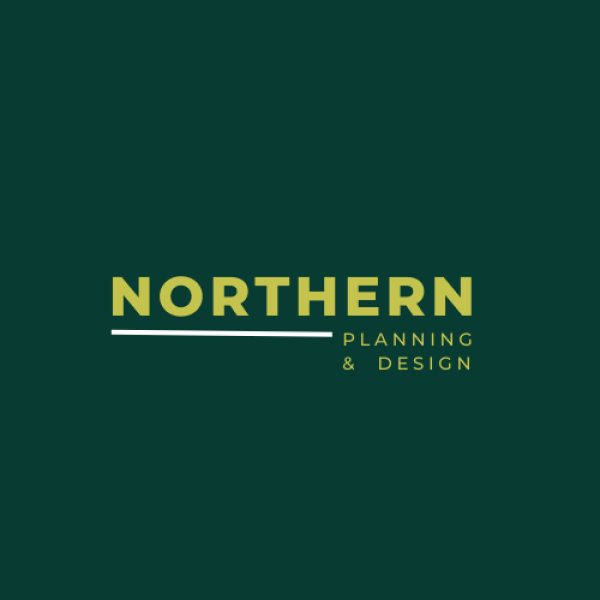Garage Conversions in Liversedge
Search Garage Conversions in places nearby
- Garage Conversions in Baildon
- Garage Conversions in Batley
- Garage Conversions in Bingley
- Garage Conversions in Bradford
- Garage Conversions in Brighouse
- Garage Conversions in Castleford
- Garage Conversions in Cleckheaton
- Garage Conversions in Dewsbury
- Garage Conversions in Elland
- Garage Conversions in Featherstone
- Garage Conversions in Garforth
- Garage Conversions in Guiseley
- Garage Conversions in Halifax
- Garage Conversions in Hebden Bridge
- Garage Conversions in Heckmondwike
- Garage Conversions in Hemsworth
- Garage Conversions in Holmfirth
- Garage Conversions in Horbury
- Garage Conversions in Horsforth
- Garage Conversions in Huddersfield
- Garage Conversions in Ilkley
- Garage Conversions in Keighley
- Garage Conversions in Knottingley
- Garage Conversions in Leeds
- Garage Conversions in Mirfield
- Garage Conversions in Morley
- Garage Conversions in Normanton
- Garage Conversions in Ossett
- Garage Conversions in Otley
- Garage Conversions in Pontefract
- Garage Conversions in Pudsey
- Garage Conversions in Queensbury
- Garage Conversions in Rothwell
- Garage Conversions in Shipley
- Garage Conversions in Silsden
- Garage Conversions in Sowerby Bridge
- Garage Conversions in Todmorden
- Garage Conversions in Wakefield
- Garage Conversions in Wetherby
- Garage Conversions in Yeadon
Introduction to Garage Conversions in Liversedge
Garage conversions in Liversedge have become increasingly popular as homeowners seek to maximise their living space without the hassle of moving. This trend is not just about adding square footage; it's about transforming underutilised spaces into functional, beautiful areas that enhance the home's value and utility. Whether you're considering a new home office, a guest room, or a playroom, converting your garage can be a cost-effective solution.
The Benefits of Garage Conversions
Garage conversions offer numerous benefits. Firstly, they increase the living space without the need for an extension, which can be more costly and time-consuming. Secondly, they can significantly boost the property's value, making it an attractive investment. Additionally, converting a garage can improve the energy efficiency of a home, as garages are often poorly insulated.
Cost-Effectiveness
One of the primary advantages of garage conversions is their cost-effectiveness. Compared to building an extension, converting a garage is generally cheaper, as the basic structure is already in place. This means less money spent on foundations and external walls, allowing homeowners to focus their budget on interior design and functionality.
Increased Property Value
Adding a new room to your home can significantly increase its market value. A well-executed garage conversion can provide a high return on investment, especially if it adds a desirable feature, such as an extra bedroom or a home office. Potential buyers often see the additional space as a major selling point.
Enhanced Energy Efficiency
Garages are typically not built with energy efficiency in mind. By converting your garage, you have the opportunity to insulate the space properly, install energy-efficient windows, and ensure that the heating and cooling systems are up to standard. This can lead to lower energy bills and a more comfortable living environment.
Planning Your Garage Conversion
Before diving into a garage conversion project, careful planning is essential. This involves understanding the legal requirements, setting a realistic budget, and designing a space that meets your needs.
Understanding Legal Requirements
In Liversedge, as in many parts of the UK, garage conversions may require planning permission, depending on the scope of the project. It's crucial to check with the local planning authority to ensure compliance with building regulations. These regulations cover aspects such as fire safety, insulation, and structural integrity.
Building Regulations
Building regulations are in place to ensure that any conversion is safe and habitable. They cover a range of factors, including structural stability, fire safety, ventilation, and thermal performance. It's important to work with a qualified professional who can guide you through the process and ensure that all regulations are met.
Planning Permission
Not all garage conversions require planning permission. However, if your project involves significant changes to the structure or appearance of the building, you may need to apply. It's always best to consult with the local planning authority to determine whether your conversion requires permission.
Setting a Budget
Establishing a budget is a critical step in the planning process. Consider all potential costs, including design, materials, labour, and any necessary permits. It's wise to include a contingency fund for unexpected expenses that may arise during the project.
Cost Estimation
To get a rough estimate of the costs involved, consider the size of the garage, the complexity of the design, and the quality of materials you wish to use. Consulting with contractors and obtaining multiple quotes can provide a clearer picture of the financial commitment required.
Financing Options
If your budget is tight, explore financing options such as home improvement loans or remortgaging. Some homeowners may also consider using savings or investments to fund the project. It's important to weigh the pros and cons of each option and choose the one that best suits your financial situation.
Designing Your Space
The design phase is where your vision comes to life. Consider how you want to use the space and what features are most important to you. Whether it's a cosy family room, a sleek home office, or a vibrant playroom, the design should reflect your lifestyle and needs.
Choosing a Layout
Think about the layout that will best suit your intended use of the space. Open-plan designs can create a sense of spaciousness, while partitioned areas can provide privacy and functionality. Consider factors such as natural light, access, and flow when planning the layout.
Interior Design Elements
Interior design elements such as colour schemes, flooring, and lighting play a crucial role in the overall feel of the converted space. Choose materials and finishes that complement the rest of your home and create a cohesive look. Don't forget to incorporate storage solutions to keep the space organised and clutter-free.
Executing the Garage Conversion
Once the planning and design phases are complete, it's time to execute the conversion. This involves hiring the right professionals, managing the construction process, and ensuring quality control.
Hiring Professionals
Hiring experienced professionals is key to a successful garage conversion. This includes architects, builders, and possibly interior designers. Look for professionals with a proven track record and positive reviews from previous clients.
Choosing the Right Contractor
When selecting a contractor, consider their experience, reputation, and pricing. It's important to obtain multiple quotes and ask for references. A good contractor will communicate clearly, provide a detailed contract, and adhere to agreed timelines and budgets.
Working with an Architect
An architect can help bring your vision to life, ensuring that the design is both functional and aesthetically pleasing. They can also assist with navigating building regulations and obtaining necessary permits. Choose an architect who understands your style and can work within your budget.
Managing the Construction Process
Effective management of the construction process is crucial to keeping the project on track. This involves coordinating with contractors, monitoring progress, and addressing any issues that arise.
Timeline Management
Establish a clear timeline for the project and communicate it to all parties involved. Regular check-ins with the contractor can help ensure that the project stays on schedule. Be prepared for potential delays and have a plan in place to address them.
Quality Control
Maintaining quality control throughout the construction process is essential. Regular site visits and inspections can help identify any issues early on. Ensure that all work meets the required standards and that any problems are addressed promptly.
Final Touches and Furnishing
Once the construction is complete, it's time to add the final touches and furnish the space. This is where your personal style and creativity can shine.
Decorating the Space
Decorating the converted space is an opportunity to express your personality and make it truly your own. Consider adding artwork, textiles, and decorative items that reflect your taste. Plants and greenery can also add life and vibrancy to the room.
Choosing Furniture
Select furniture that complements the design and function of the space. Consider the scale and proportion of the furniture to ensure it fits comfortably within the room. Multi-functional furniture can be a great option for maximising space and utility.
Frequently Asked Questions
- Do I need planning permission for a garage conversion in Liversedge? It depends on the scope of the project. Check with the local planning authority to determine if permission is required.
- How much does a garage conversion cost? Costs vary based on size, design complexity, and materials. Obtain multiple quotes for a more accurate estimate.
- Can I convert my garage into a bedroom? Yes, garages can be converted into bedrooms, provided they meet building regulations for habitable spaces.
- How long does a garage conversion take? The timeline varies, but most conversions take between 4 to 8 weeks, depending on the complexity of the project.
- Will a garage conversion add value to my home? Yes, a well-executed conversion can increase your property's value by adding functional living space.
- What are the common uses for converted garages? Common uses include home offices, guest rooms, playrooms, and gyms.
Garage conversions in Liversedge offer a fantastic opportunity to enhance your home without the need for a costly extension. With careful planning, a clear vision, and the right professionals, you can transform your garage into a valuable and functional space that meets your needs and adds value to your property. Whether you're looking to create a cosy retreat or a practical workspace, the possibilities are endless.

















